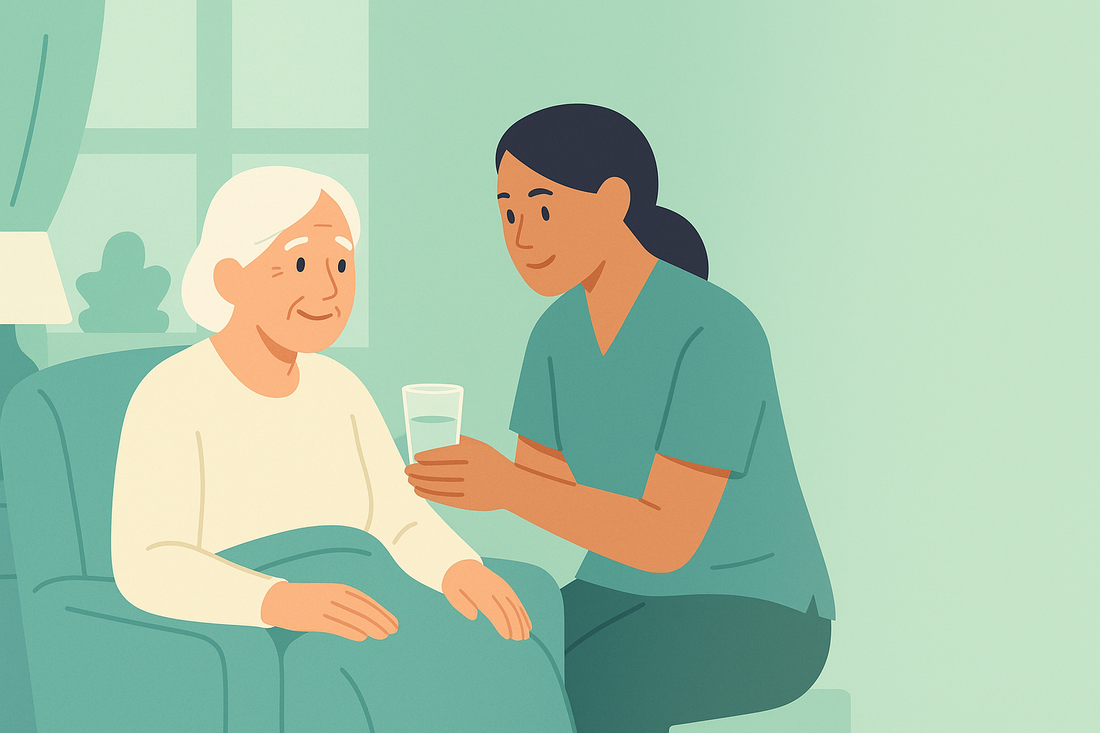
Tips for Caring for Elderly at Home Australia: 7 Simple Ways
More Australian families are choosing home-based support for ageing loved ones. Knowing the right tips for caring for elderly at home Australia can make daily life safer, calmer and less stressful for everyone involved. Use the guidance below to build a routine that protects dignity, reduces risk and lightens the load on carers.
1. Make the home safer and easier to move around
Start with a simple safety check. Clear walkways, tape down cords, remove trip hazards and add non‑slip mats in bathrooms and kitchens. Good lighting helps with balance and confidence, especially at night. If needed, install grab rails and consider a shower chair or raised toilet seat. Small changes can prevent big problems.
2. Create a reliable daily care routine
Consistency reduces stress. Set gentle times for waking, meals, medications and rest. Keep personal care items in the same place so they are easy to find. A simple written checklist on the fridge helps family members or support workers follow the same steps each day.
3. Look after skin, hygiene and comfort
Older skin is thinner and more sensitive. Choose fragrance‑free cleansers, pH‑balanced washes and breathable fabrics to minimise irritation. Continence care is easier with barrier creams and gentle wipes. Stock dependable basics from trusted suppliers; our Total Care Essentials skin care range includes options selected with comfort in mind.
4. Support mobility and independence
Safe movement protects health and mood. Encourage short walks, simple stretches and regular position changes when sitting. Mobility aids like walking frames, canes and transfer aids can reduce falls and fatigue. Even small upgrades like supportive footwear or cushioned seating can make daily activities less tiring and more enjoyable.
5. Keep meals simple, nourishing and hydrating
Good nutrition supports energy, healing and mood. Aim for balanced meals with protein, fibre and healthy fats. Keep easy snacks on hand and offer water regularly; dehydration is common in older adults. If cooking each day is hard, consider batch cooking, frozen meals or local meal services.
6. Protect mental and emotional wellbeing
Connection matters. Plan regular chats with friends or family, short outings or time in the garden. Encourage activities that suit interests and abilities like music, puzzles, reading or photo albums. Carers also need breaks; short rests and shared duties help prevent burnout.
7. Know where to get extra help
Home care works best with support. Explore government programs, local services and respite options. The Australian Government’s My Aged Care explains eligibility and services, and the Carer Gateway offers practical help and advice. Asking for assistance is a strength, not a weakness.
Practical tips for caring for elderly at home Australia
As you build your plan, return to the basics: a safe home, a steady routine and the right tools. Revisit this list whenever needs change and adjust gently. Keep essentials stocked, label items clearly and maintain a simple communication diary so everyone stays on the same page.
Putting it all together
These tips for caring for elderly at home Australia are designed to be flexible. Start with one or two changes like improving bathroom safety or simplifying the morning routine then build from there. With the right products, clear steps and a little support, home can remain the most comfortable place to live and be cared for.







